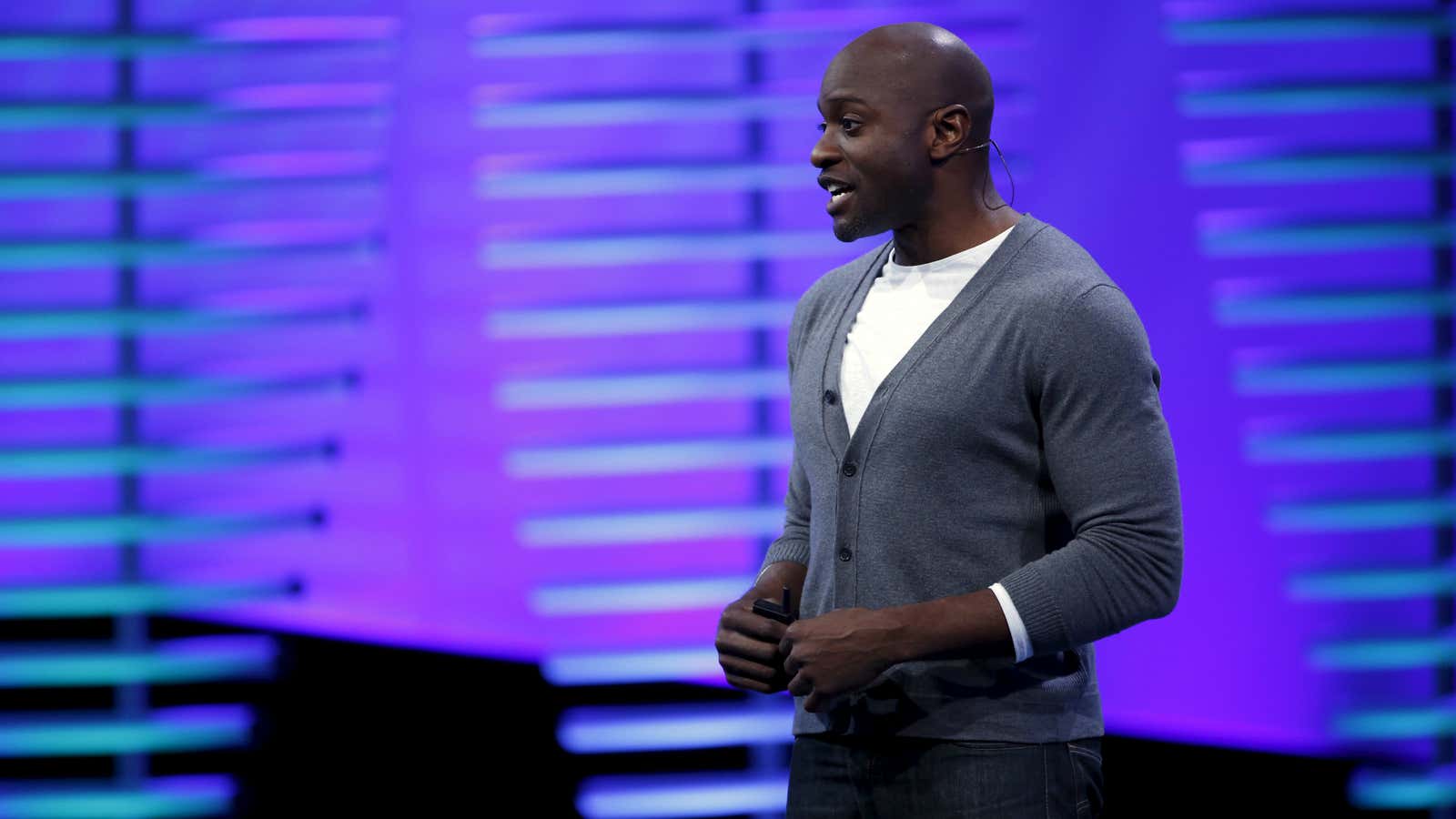Mark Zuckerberg has just spent two days visiting Nigeria in a move that could signal more attention from Silicon Valley. That Zuckerberg chose Lagos as the destination of his first trip to sub-Saharan Africa would have been a surprise to some.
Other African countries could make a case of being more obvious destinations for Zuckerberg’s first trip to the continent. Kenya is often hailed as a more high profile tech market with widely available fast internet connections and a thriving ‘Silicon Savannah’ tech ecosystem for its startups. It can also show off mobile money service, M-Pesa which has gained global acclaim, and pay-as-you-go solar service M-Kopa, which won praise from Barack Obama during the US president’s visit to Kenya last year. Similarly, South Africa, the continent’s most advanced economy, is not just home to Facebook’s only Africa office and a leader in digital advertising in Africa but it also holds more than double the number of tech hubs in Nigeria.
Indeed, some US investors and strategic partners have bypassed Nigeria because it’s often privately described as ’tough’ and ‘opaque’ with poor basic infrastructure for electricity and internet, despite the population’s obvious dynamism and potential.
But it looks like Zuckerberg’s choice of Lagos is likely down to an influential team of predominantly Nigerian-Americans at Facebook.
As Techpoint, a Nigerian tech blog, reported, more than fifteen managers and executives of Nigerian background work with and around Zuckerberg at the world’s largest social networking site, occupying a range of high-profile roles. Among the most prominent are Emeka Afigbo, who handles strategic product partnerships for Facebook in sub-Saharan Africa and Ime Archibong, Facebook’s director of strategic partnerships. Back in May, Archibong and Afigbo led a Facebook delegation to launch the company’s Free Basics—a service that aims to help more people access the internet at no cost—in Nigeria. Afigbo, in particular, is said to be one of Zuckerberg’s trusted advisers on growing the company in Africa. He’s believed to have influenced Zuckerberg’s decision to back Lagos-based coder training center Andela. Before Facebook, Afigbo and Archibong worked at Google and IBM respectively.
Ebele Okobi, Facebook’s head of public policy for Africa, is another prominent Nigerian at the company. She leads the company’s public policy work in sub Saharan Africa and has been involved in some of Facebook’s Nigeria-focused initiatives. Last year, she led a training initiative which saw Nigerian lawmakers schooled on how to use the social networking platform for effective engagement with their constituents.
As Techpoint notes, Facebook has several other Nigerians in key leadership roles across media partnerships, products and payments.
It’s worth noting an influential minority group at Facebook given Silicon Valley’s recent self-examination and handwringing over a lack of diversity in its ranks particularly among engineers and leadership roles overall. Blacks and Hispanics comprise just 1% of engineering leadership at Twitter, 2% at Google, and 2% at Facebook.
Long-term, having a crop of young executives with Nigerian backgrounds in prominent roles at one of the world’s generation-defining technology companies could hopefully support even more local growth.




